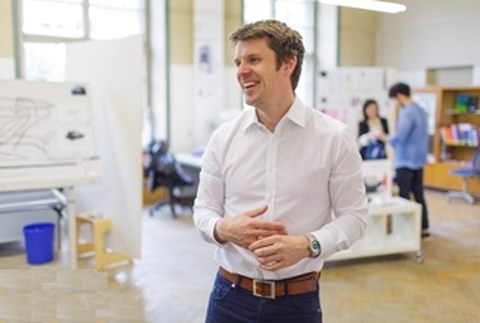Junior Professorship
The junior professorship, introduced in 2002 by the Federal Ministry of Education and the Saxon state law, is an opportunity for young, excellent scientists to teach and research at the university without going through habilitation. The junior professorship helps strengthening scientific independence at an early stage of the academic career, removing the hurdle of habilitation towards a chair and boosting international competitiveness of the science hub Germany by the approximate comparability with assistant professorships, e.g. in the US or Switzerland.
Junior professors and assistant professors are fully integrated into the institutional procedures of the university. They are directly responsible for their own chair and for teaching assignments, they supervise final and doctoral theses, conduct exams and are represented in the committees of the university.
For appointment to a W1 junior professorship, the following requirements must be met in accordance with § 64 SächsHSG:
- Completed university degree
- Pedagogical aptitude
- Special aptitude for scientific work, which is usually demonstrated by the quality of a doctorate.
For junior professorships with medical or dental duties, recognition as a specialist or, if this is not provided for in the respective field, at least five years of medical practice after obtaining a license to practice or permission to practice must also be demonstrated. If the junior professorship to be filled involves educational or subject-specific teaching tasks in teacher training, three years of professional experience at a school must be demonstrated.
In addition, the combined duration of doctoral studies and employment as a research assistant or scientific assistant should not exceed six years, or nine years in the field of medicine.
As a general rule, junior professorships are published internationally as temporary positions. Typically, appointment is for three years, which will be extended to six years in total, after a positive evaluation. In some cases, there is the option for continuation of the junior professorship, so that after a further positive evaluation (without renewed appointment) the appointment is immediately converted into a W2 or W3 lifetime chair (tenure track).
Junior professors are typically given the status of civil servant and receive a salary of grade W1. No benefits will be paid, but the salary increases after positive interim evaluation. The facilities of junior professorships are still not satisfactory; often, the human and material resources are acquired through third-party funds.
As a junior professor, you work as a university teacher. Therefore, it is important to constantly expand own interdisciplinary competences. In order to fully support you in this stage of career, TU Dresden has established a programme specifically tailored to your needs. It offers a comprehensive package for your daily work, your personal and professional development, with the three pillars of training and individual coaching, tandem mentoring and networking opportunities.

